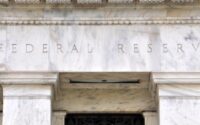3 Reasons Why Countries Devalue Their Currency
Currency devaluation is an economic policy by a country’s government to weaken the value of its currency. Ever since world currencies abandoned the gold standard and allowed their exchange rates to float freely against each other, there have been many currency devaluation events that have hurt not only the citizens of the country involved but have also rippled across the globe.
If the fallout can be so widespread, why do countries devalue their currency? In short, countries do it to boost exports, shrink trade deficits, and reduce sovereign debt burdens. Below we take a closer look at currency devaluation and the reasons why countries do it.
Key Takeaways
- Currency devaluation involves taking measures to strategically lower the purchasing power of a nation’s own currency.
- Countries may pursue such a strategy to gain a competitive edge in global trade and reduce sovereign debt burdens.
- Devaluation, however, can have unintended consequences that are self-defeating.
Devaluing Currency
It may seem counter-intuitive, but a strong currency is not necessarily in a nation’s best interests. A weak domestic currency makes a nation’s exports more competitive in global markets and simultaneously makes imports more expensive.
Higher export volumes spur economic growth, while pricey imports also have a similar effect because consumers opt for local alternatives to imported products. This improvement in the terms of trade generally translates into a lower current account deficit (or a greater current account surplus), higher employment, and faster GDP growth.
The stimulative monetary policies that usually result in a weak currency also have a positive impact on the nation’s capital and housing markets, which in turn boosts domestic consumption through the wealth effect.
The United States went off the gold standard in 1933. In 1971, the U.S. stopped converting dollars to gold at a fixed value.
It is worth noting that a strategic currency devaluation does not always work, and moreover may lead to a ‘currency war’ between nations. Competitive devaluation is a specific scenario in which one nation matches an abrupt national currency devaluation with another currency devaluation. In other words, one nation is matched by a currency devaluation of another.
This occurs more frequently when both currencies have managed exchange-rate regimes rather than market-determined floating exchange rates. Even if a currency war does not break out, a country should be wary of the negatives of currency devaluation.
Currency devaluation may lower productivity, since imports of capital equipment and machinery may become too expensive. Devaluation also significantly reduces the overseas purchasing power of a nation’s citizens.
Below, we look at the three top reasons why a country would pursue a policy of devaluation:
1. To Boost Exports
On a world market, goods from one country must compete with those from all other countries. Car makers in America must compete with car makers in Europe and Japan. If the value of the euro decreases against the dollar, the price of the cars sold by European manufacturers in America, in dollars, will be effectively less expensive than they were before.
On the other hand, a more valuable currency makes exports relatively more expensive for purchase in foreign markets.
In other words, exporters become more competitive in a global market. Exports are encouraged while imports are discouraged. There should be some caution, however, for two reasons. First, as the demand for a country’s exported goods increases worldwide, the price will begin to rise, normalizing the initial effect of the devaluation.
The second is that as other countries see this effect at work, they will be incentivized to devalue their own currencies in kind in a so-called “race to the bottom.” This can lead to tit-for-tat currency wars and lead to unchecked inflation.
2. To Shrink Trade Deficits
Exports will increase and imports will decrease due to exports becoming cheaper and imports more expensive. This favors an improved balance of payments as exports increase and imports decrease, shrinking trade deficits. Persistent deficits are not uncommon today, with the United States and many other nations running persistent imbalances year after year.
Economic theory, however, states that ongoing deficits are unsustainable in the long run and can lead to dangerous levels of debt which can cripple an economy. Devaluing the home currency can help correct the balance of payments and reduce these deficits.
There is a potential downside to this rationale, however. Devaluation also increases the debt burden of foreign-denominated loans when priced in the home currency. This is a big problem for a developing country like India or Argentina which hold lots of dollar- and euro-denominated debt. These foreign debts become more difficult to service, reducing confidence among the people in their domestic currency.
3. To Reduce Sovereign Debt Burdens
A government may be incentivized to encourage a weak currency policy if it has a lot of government-issued sovereign debt to service on a regular basis. If debt payments are fixed, a weaker currency makes these payments effectively less expensive over time.
Take for example a government that has to pay $1 million each month in interest payments on its outstanding debts. But if that same $1 million of notional payments becomes less valuable, it will be easier to cover that interest. In our example, if the domestic currency is devalued to half of its initial value, the $1 million debt payment will only be worth $500,000 now.
Again, this tactic should be used with caution. As most countries around the globe have some debt outstanding in one form or another, a race-to-the-bottom currency war could be initiated. This tactic will also fail if the country in question holds a large number of foreign bonds since it will make those interest payments relatively more costly.
Why Would a Country Want to Devalue Its Currency?
There are a few reasons why a country may want to devalue its currency. Devaluing a currency is usually an economic policy, whereby devaluation makes a currency weaker compared to other currencies, which would boost exports, close the gap on trade deficits, and shrink the cost of interest payments on government debt.
What Would Happen if the U.S. Devalued the Dollar?
If the U.S. devalued the dollar, the cost of imports would increase because foreign firms would no longer want to do business in dollars, the government would not be able to borrow at the current rates, which would mean that it would have to raise taxes or print money to cover its deficit, and inflation would rise significantly because of the higher cost of imports and the printing of money. Overall, the economy would severely be hit negatively.
What Is U.S. Money Backed by?
The U.S. dollar is not backed by any physical asset. Like most currencies in the world today, the value of a currency is based on the demand for that currency. Many currencies, including the U.S. dollar., used to be backed by gold, but no longer.
The Bottom Line
Currency devaluations can be used by countries to achieve economic policy. Having a weaker currency relative to the rest of the world can help boost exports, shrink trade deficits, and reduce the cost of interest payments on outstanding government debts. There are, however, some negative effects of devaluations.
They create uncertainty in global markets that can cause asset markets to fall or spur recessions. Countries might be tempted to enter a tit-for-tat currency war, devaluing their own currency back and forth in a race to the bottom. This can be a very dangerous and vicious cycle leading to much more harm than good.
Devaluing a currency, however, does not always lead to its intended benefits. Brazil is a case in point. The Brazilian real has plunged substantially since 2011, but the steep currency devaluation has been unable to offset other problems such as plunging crude oil and commodity prices and a widening corruption scandal. As a result, the Brazilian economy has experienced sluggish growth.
[ad_2]
Source link


